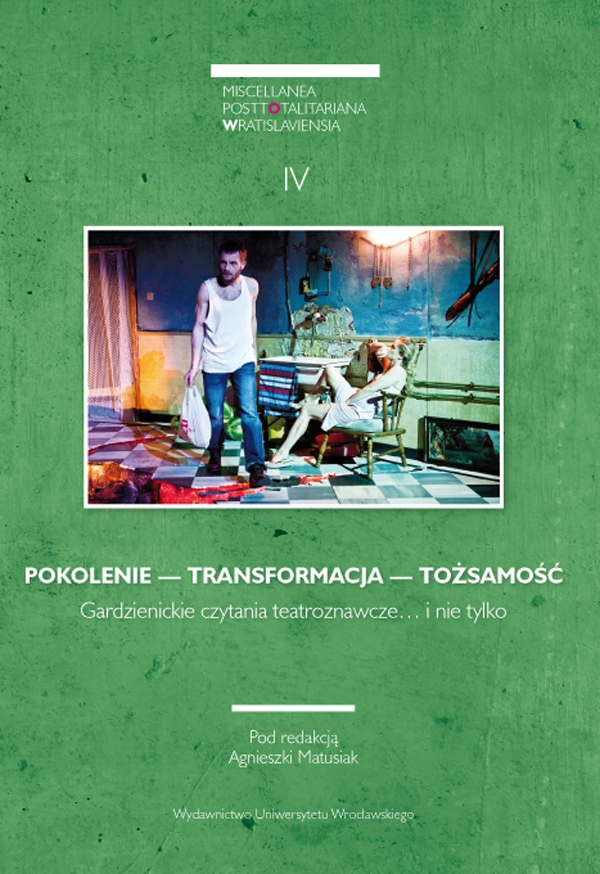

Artykuły

„Without memory” — from a generational experience to diversity of memories based on selected examples of Polish dramas and films.
This article outlines the perspective of the development of Polish drama after 1989, when the totalitarian system was replaced with the ideas of liberal democracy. The main terms that define the scope of issues under investigation and the selection of dramas include ‘memory’ and ‘generational experience.’
The reflections begin with stating the inadequacy of previous cultural models and discourses with reference to the new socio-political reality that began in Poland after 1989. Further on, selected dramas of the most prominent playwrights of the 20th century: Tadeusz Różewicz and Sławomir Mrożek are analysed. Based on their example it is proven that the language of Polish drama from the communist period actually transfers ancient linguistic forms from the pre-war period and from the 19th century. However, in the 1990s the old masters could no longer find a language which would render the experience of people living in the period of transformation. It is achieved only a decade after the system transformation in Poland when at the beginning of the 21st century an anthology of young Polish drama entitled Porno generation is published. It marks the beginning of an artistic attitude that is characterised with a close contact of a play’s subjects with the presented reality. This attitude leads to one of the branches of modern dramaturgy based on a free usage and combination of various styles and elements of both literature and culture while simultaneously revealing personal engagement in the reality created in artistic activity. I will discuss dramas by Dorota Masłowska and selected Polish films of the last decade: All that I love, Yuma, and Motor as representative examples of this type of artistic activity.
«Без памяти» — от поколенческого опыта до разнообразия воспоминаний на избранных примерах польских пьес и фильмов.
Статья представляет тенденции развития польской драматургии после 1991 года, когда тоталитарная система была заменена идеями либеральной демократии. В подборе произведений автор руководствовался содержащимися в них проблемами «памяти» и «поколенческого опыта». Рассуждения начинаются с обоснования неадекватности существующих раньше культурных моделей и дискурсов по отношению к новой общественно-политической действительности, которая началась в Польше после 1989 года. Затем анализируются произведения выдающихся польских драматургов XX века: Тадеуша Ружевича и Словомира Мрожка. На их примере автор доказывает, что язык польских пьес коммунистического периода фактически перенимает устаревшие языковые формы довоенного периода и XIX века. Однако в 90-х гг. старые мастера не были уже в состоянии найти язык, который описывал бы опыт людей, живущих в период трансформации. Этого удалось достигнуть другим литераторам лишь спустя десятилетие после политической трансформации в Польше, когда в начале XXI века вышла антология молодой польской драматургии — Pokolenie porno. Эта публикация является символическим началом творческой позиции, отличающейся близкой связью тематики пьес с представляемой в них действительностью. Такая творческая позиция ведет к одной из ветвей современной драматургии, которая основывается на свободном использовании и соединении стилей и элементов литературы и культуры, и в то же время отображает личное активное участие в действительности, созданной в рамках творческой деятельности. В тексте обсуждаются пьесы Дороты Масловской и избранные польские фильмы последнего десятилетия Wszystko, co kocham, Yuma и Motor как репрезентативные примеры такого типа творческой деятельности.